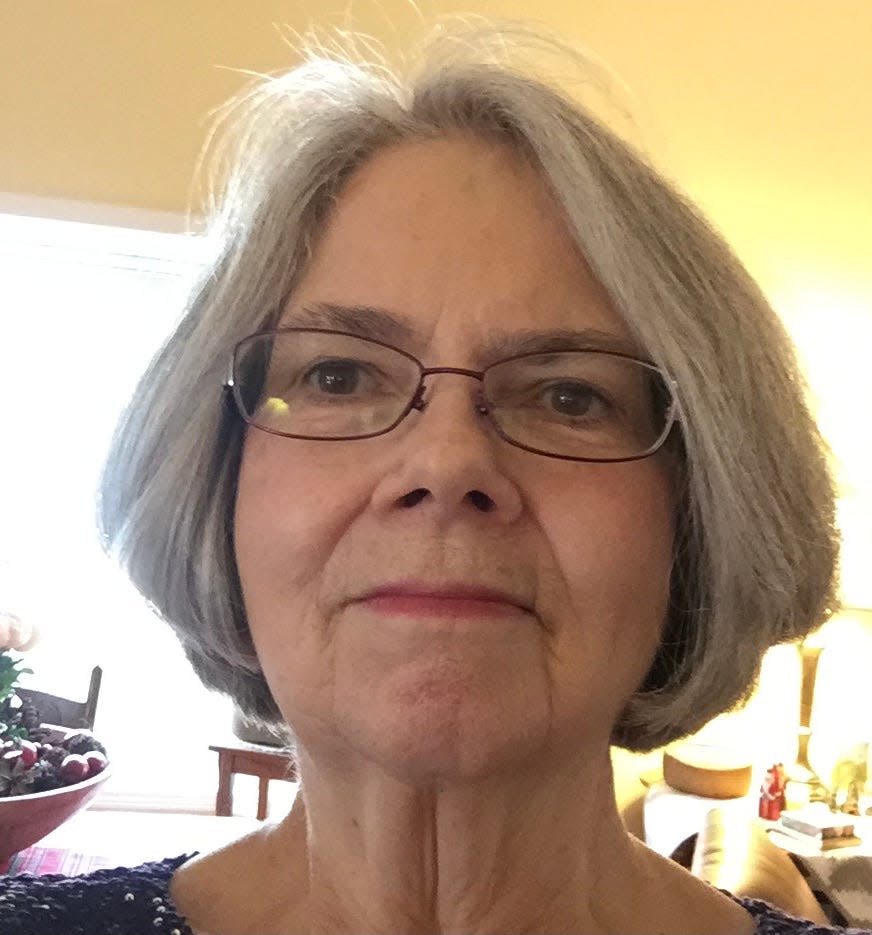Barbara Mezeske: Whose freedom? Whose rights?
Does anyone other than me feel frustrated by the culture wars? By culture wars, I mean the constant battle to correct or control the behavior of others, to weigh in on othes’ sexuality, to deny that racism impacts everyday life, to keep the experience of childhood free from disturbing or unsettling ideas?
As a county, state and nation, we are wrestling with existential questions: What is freedom? What is liberty? How does society balance the needs of the individual with the needs of the group? Who creates norms? Who is entitled to judge others?
A philosophy course in college taught me that these debates are as old as Socrates, as old as the Bible, as old as the Tao Te Ching. All cultures have wrestled with questions like these. We aren’t going to solve them here in Holland — not this year, and likely not ever.

But that doesn’t mean we shouldn’t think about the big questions. After all, how a society frames and settles these debates dictates the way we live in the immediate moment. If I lived in Stalinist Russia in the 1940s, my youth would have been — in every way imaginable — different from growing up in 1960s Chicagoland.
Let’s start, however, with today’s experience of childhood. Parents and grandparents want kids to learn in a physically and emotionally healthy environment. Kids learn like sponges, and we want schools to ignite their curiosity and give them the skills to function in the adult world. We have a long history in this country of public education, established because our earliest leaders recognized an educated citizenry was essential to democracy. Democracy works because — at least in theory — thoughtful, educated people make good choices about laws, leadership and policy. Historically, private education has embraced those same values whether the school is secular or religious.
What good does it serve to limit what can be taught in schools to the sensibilities of the minority? How is it that in Florida, a single parent who believes Michelangelo’s David is pornography could cause a principal to lose her job? Or a single family that thinks the historical Disney film "Ruby Bridges," released in 1998, unacceptably presents race so as to make white students feel guilty? Or a single objector can question Allendale Public Schools’ membership in the Lakeland Library Cooperative? What are the limits of parental rights? What about the rights of parents who want their kids to study classical art, or the history of the civil rights movement, or to access an e-book their library doesn’t own? How does a school or a child navigate the conflict when one parent’s right conflicts with the rights of others?
Going to school in America is already scary. The massacre at Columbine High School was in 1999. The latest school shooting was last week in Nashville. There may be another by the time this column is posted. The kids who endured Columbine are now old enough to send their own kids to school. Today, active shooter drills begin in preschool. Ask any kid what to do if a shooter is in the building, and you will be chilled by the matter-of-fact recitation of “flee, hide, fight” strategies. Fear is built into our schools, public and private, by the unfettered right to own weapons of war.
Protecting a child from books, movies or art that might jar that child’s worldview is important to the culture warriors in ways that enacting gun laws is not. What is the effect of this values choice upon today’s kids?
Parents do have rights relating to their children’s education: qualified and experienced teachers, decent facilities, texts that are current, orderly classrooms, reasonable accommodations for physical and learning differences, and fair discipline. Schools everywhere respect parents’ wishes when they ask that their child not be assigned certain books or movies. Alternative assignments have been common for decades.
It is the desire and power to curtail the access of other people’s children to fiction and history books, films and art that is new.
I imagine that white people in North Carolina in the 1950s wanted the freedom to drink from a water fountain that no Black person had used. Lots of people who would never consider an abortion want to make sure that no one else does either. People who have never seen a drag show don’t want anyone else to see one. People without medical training want to restrict how doctors practice — especially when they practice obstetrics and gynecology.
Anyone who boasts of freedom in the context of their own particular right to limit the freedom of others is suspect in my book. Liberty isn’t a finite commodity. Individuals can be free to make their own choices without taking away everyone else’s power to make a different choice.
— Community Columnist Barbara Mezeske is a retired teacher and resident of Park Township. She can be reached at bamezeske@gmail.com.
This article originally appeared on The Holland Sentinel: Barbara Mezeske: Whose freedom? Whose rights?

